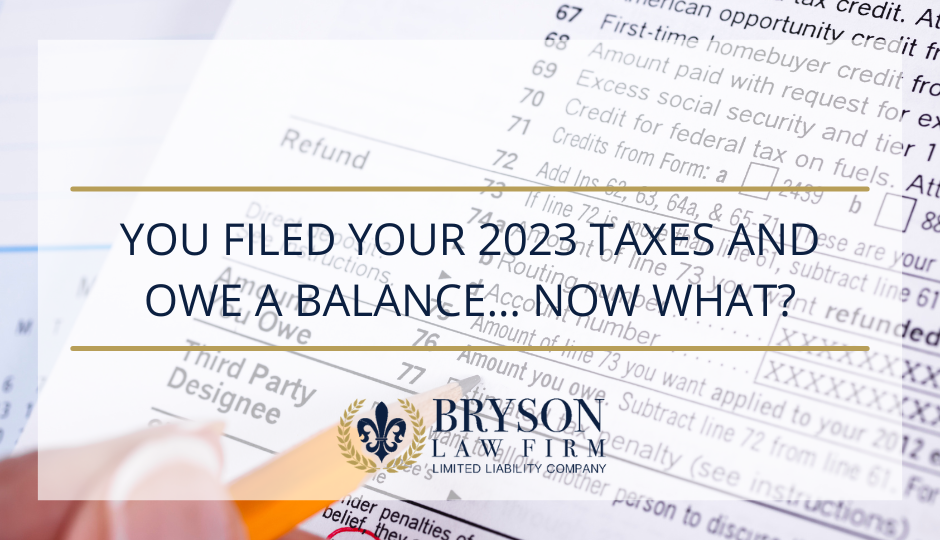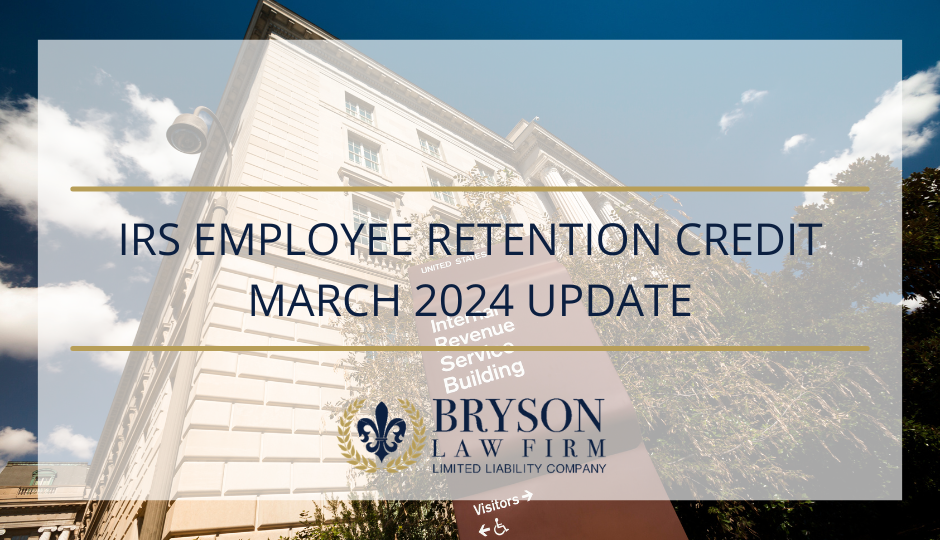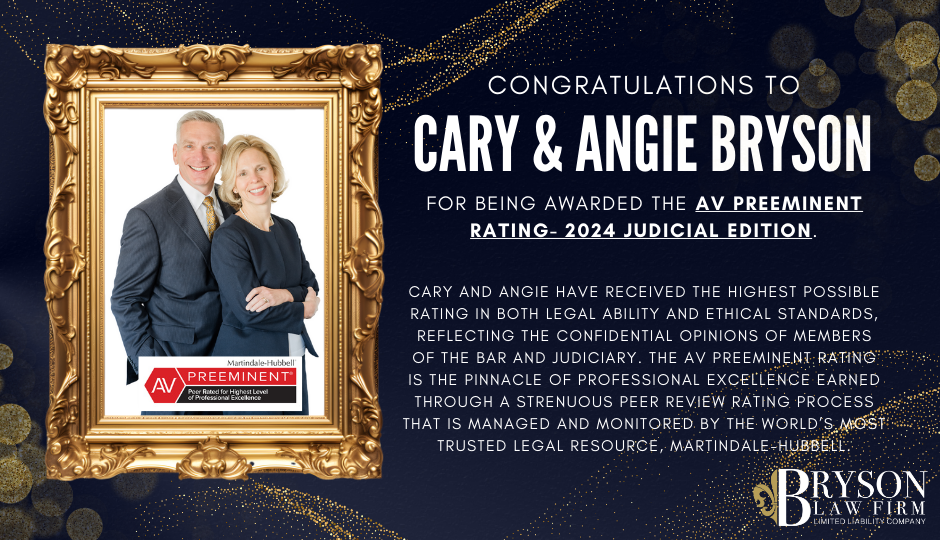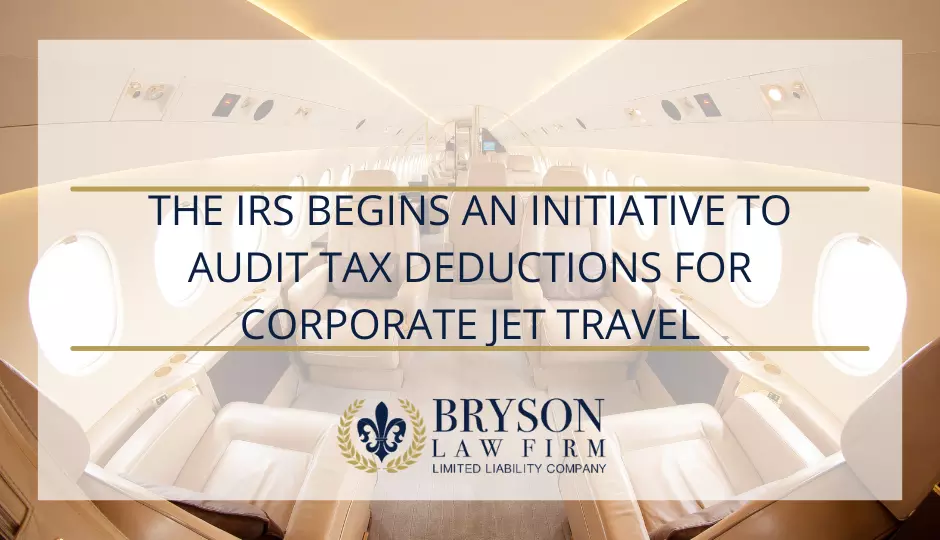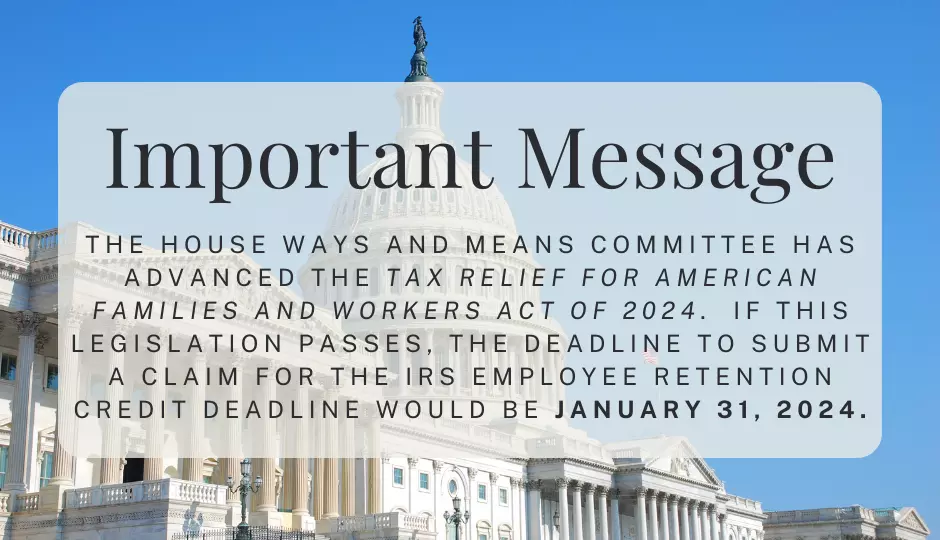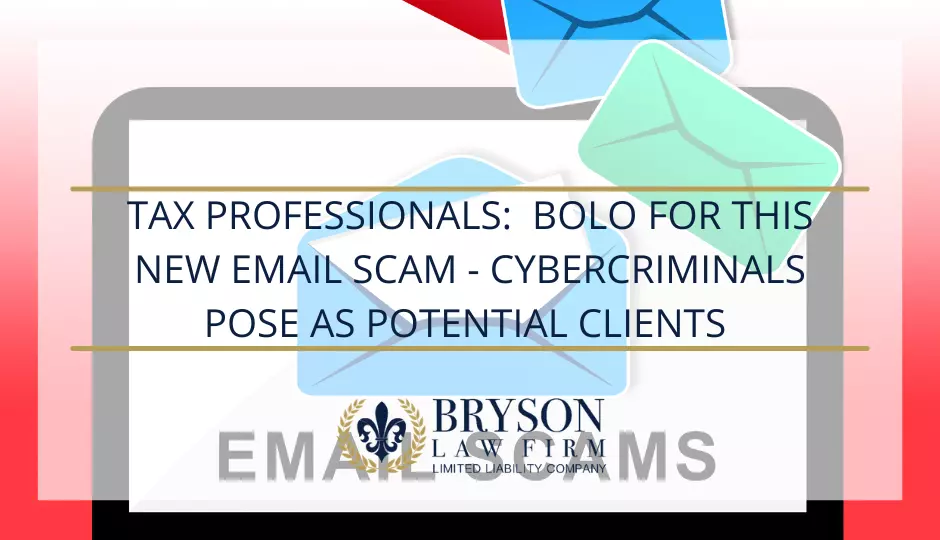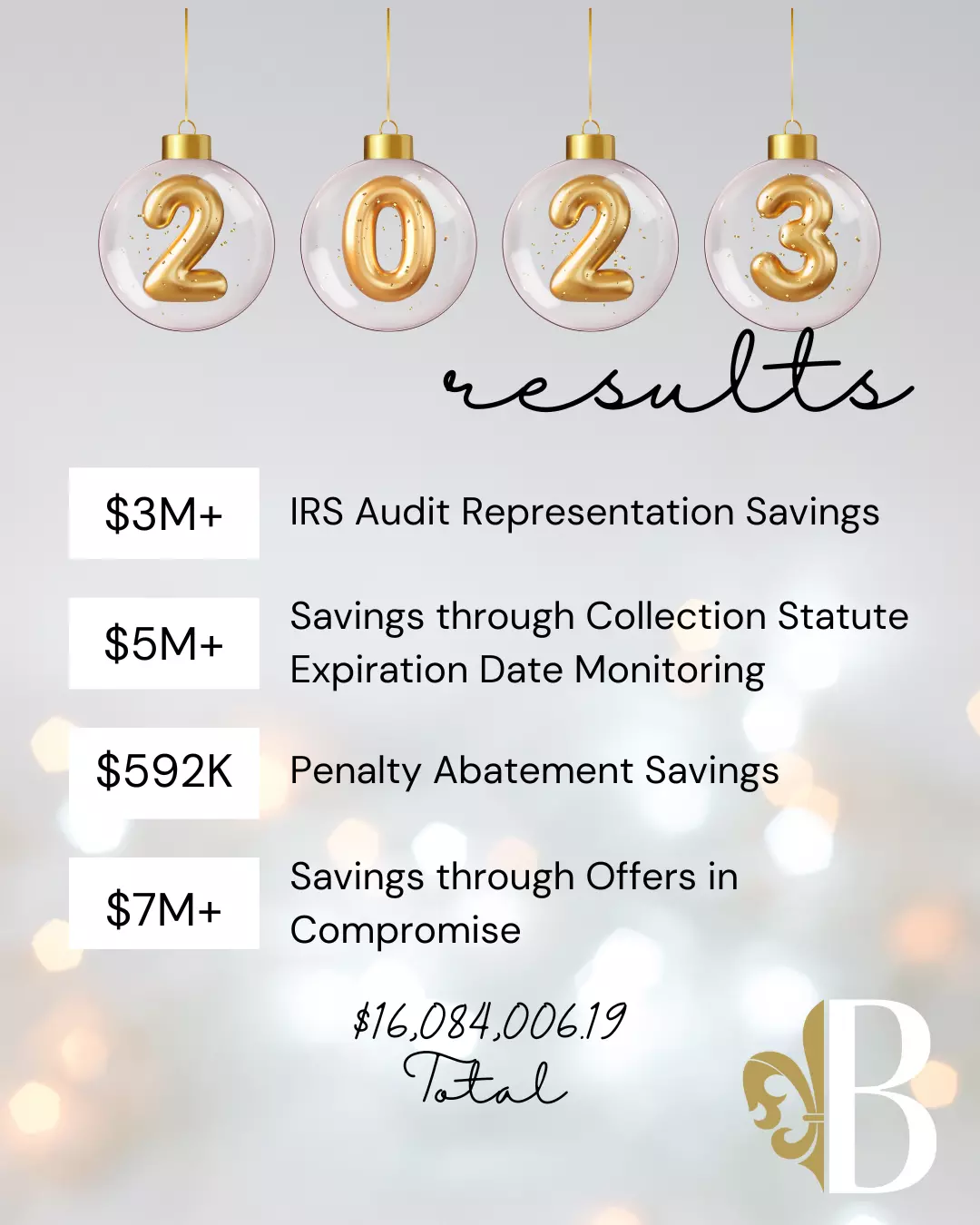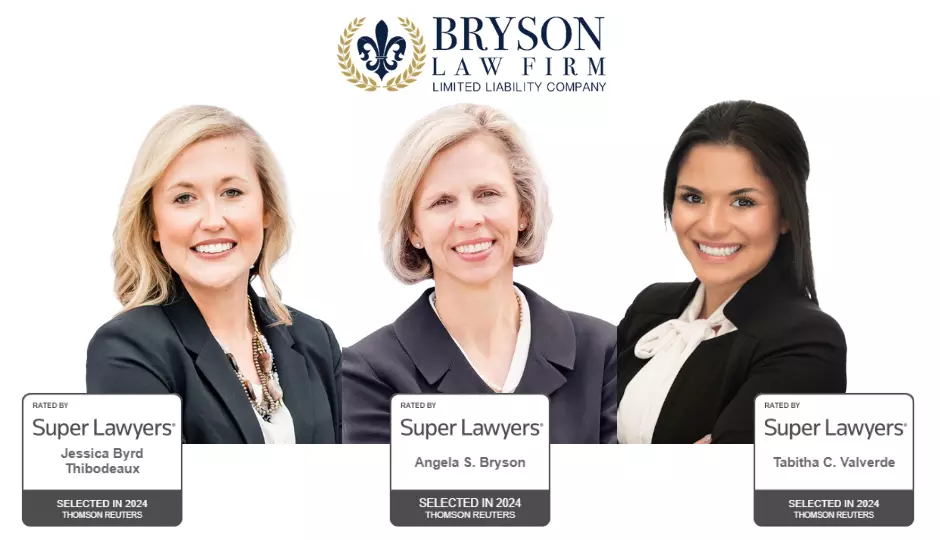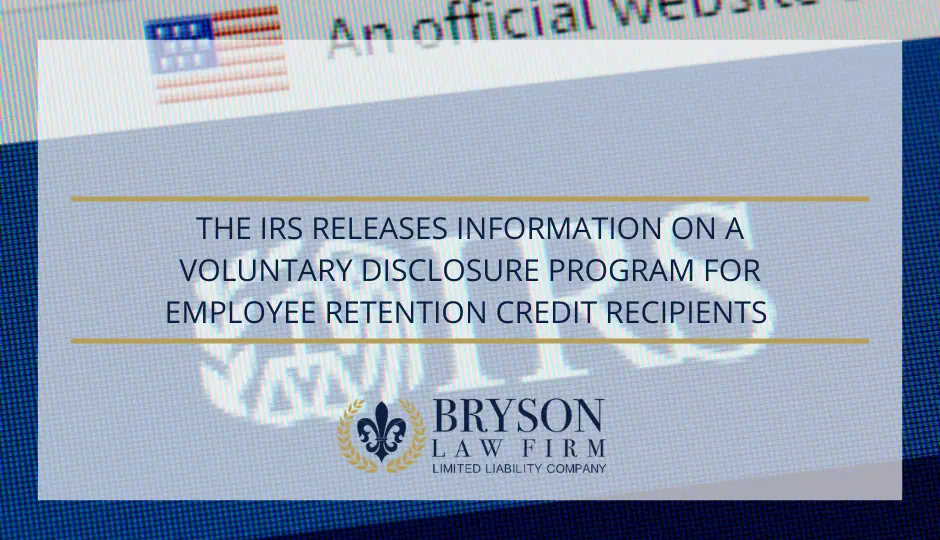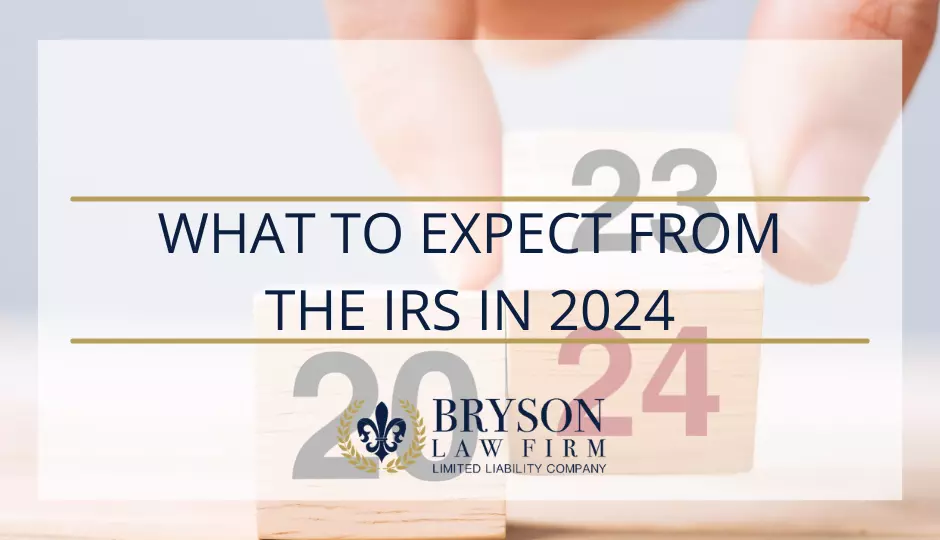Tax Season has officially come to an end, which means Bryson Law Firm, LLC’s busy season is about to begin! If you’ve filed your 2023 taxes with a balance due and are wondering, “NOW WHAT”, this blog’s for you!
First, it is important to mention that unless you filed an extension for your 2023 taxes, if you haven’t filed yet, you are now late. In addition to the fact that you have a legal obligation to file your taxes timely, failure to file a return on time also comes with hefty IRS penalties: 5% of the tax accrues if the delay in filing is not more than 30 days; an additional 5% accrues for each additional 30 days the failure to file continues, not to exceed a total of 25%. The failure to file penalty is reduced by the amount of any failure to pay penalties that month – the combined penalty to be 5% each month.
With that said, if you have not filed and have no extension to file in place, it is in your best interest to file.
Now, how can you address the balances due? That’s where Bryson Law Firm, LLC comes in.
If you are unable to pay your balance in full, you do have options. Here are a few of the most common options we see when resolving a Taxpayer’s outstanding tax return balance:
- Request an Installment Agreement. There are different types of Installment Agreements with the IRS. Some are based on what you owe – calculated monthly amounts where you pay your balance in full within a certain amount of time. Other Installment Agreements are going to be based on your current financial ability to pay the IRS. Penalties and interest do continue to accrue while in an Installment Agreement. For more information about the IRS Installment Agreement process, check out our Installment Agreement page here: https://www.brysonlawfirm.com/services/installment-agreements.html
- Obtain Currently Not Collectible Status. If you are unable to pay the IRS anything at this time due to a difficult financial time, you may be eligible for Currently Not Collectable Status. While in this status, you aren’t required to remit any payments to the IRS toward your back tax debt. However, penalties and interest do continue to accrue. The IRS periodically reviews a Taxpayer’s Currently Not Collectable Status to determine whether full payment or an Installment Agreement is then warranted. For more information about obtaining Currently Not Collectable Status, navigate to our Currently Not Collectible page: https://www.brysonlawfirm.com/services/currently-not-collectible-cnc-status.html
- Request an Offer in Compromise. If you are unable to pay your tax bill, an Offer in Compromise may be a good option for you. This would enable you to “settle” your tax debt for a reduced amount. Offer in Compromise eligibility is based on your balances owed vs. your current financial situation. Should the IRS agree to accept your Offer in Compromise, you will pay a reduced amount in settlement of your total IRS balances owed. Here’s the link to our Offer in Compromise page for more information: https://www.brysonlawfirm.com/services/offers-in-compromise-oic.html
As mentioned previously, these are just a few of the many Tax Resolution options out there. And, as illuminated in our brief explanations of each option above, each Taxpayer’s option is typically going to be custom-crafted and specific to balances owed vs. the Taxpayer’s financial specifics.
If you owe the IRS and need help, don’t wait! It’s best to develop a plan and begin the process before the IRS gets to the point that they are levying bank accounts, garnishing wages, seizing assets, etc. Contact Bryson Law Firm, LLC today. We’ll get you scheduled for a free, initial consultation with our firm to discuss how we may be able to help.
